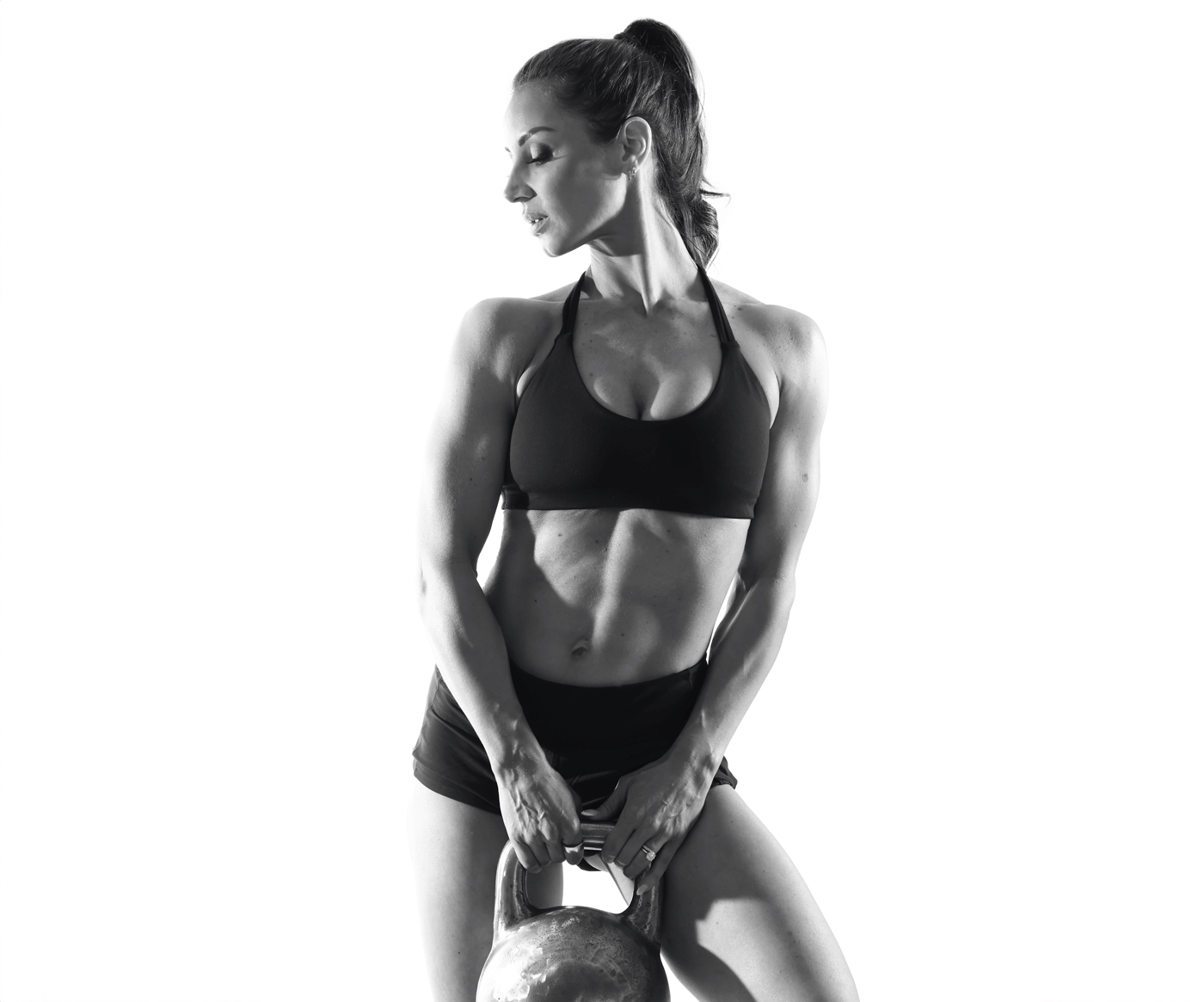
Written by Jennifer Van Barneveld-Pe, President of STRONG Fitness Magazine
Photography by Paul Buceta
Hair & Makeup by Monica Kalra
Lately I’ve been dealing with some perimenopausal symptoms. I’m in my 40s, but symptoms of perimenopause can begin as early as your 30s. Some signs to watch out for include:
- Lack of quality sleep
- Night sweats before your period
- Migraines/headache
- Changes in sexual desire
- Weight gain
- Mood swings
- Memory issues
- Vaginal dryness
- Breast tenderness
- Hair thinning or loss
- Skin changes
- General menstrual cycle changes
Hormonal As H*ll
So if you’re in your late 30s or somewhere in your 40s and you’re experiencing symptoms of perimenopause, you’re not alone. Perimenopause isn’t a journey we ask for, but it’s a journey we get, so we might as well go into it eyes wide open and educated about how hormones affect our bodies as we age. Let’s break it down.
Estrogen & Progesterone
• Influence menstrual cycle, bone density, and muscle mass
• Affect energy levels, mood, and metabolism
Cortisol
• Known as the stress hormone; impacts energy levels and recovery
• Chronic high stress levels can lead to fat storage, especially in the abdominal area
Insulin
• Regulates blood sugar levels and affects energy and fat storage
• Insulin sensitivity can impact weight management and overall metabolic health
Thyroid Hormones
• Control metabolism; imbalances can lead to weight gain or loss
• Affect energy levels, heart rate, and overall metabolic rate
Testosterone
• Important for muscle growth, strength, and recovery
• Lower levels in women can affect muscle mass and fat distribution
“Regular exercise is of course another line
of defense versus hormonal chaos.”
How to Manage Hormonal Changes with Diet & Exercise
A few tried-and-true diet and exercise changes you can make to manage your changing hormones include eating a diet rich in healthy fats. Healthy fats such as avocados, nuts, seeds, and olive oil, are essential for hormone production.Also, consume lean protein portions such as fish, chicken, and legumes. This supports muscle maintenance and hormone balance. Complex carbs such as whole grains, and vegetables are also key for maintaining great hormonal health. These stabilize blood sugar and provide sustained energy. The next hot tip? Stay cool with adequate hydration. Enough water supports overall hormonal function. And, of course, limit processed foods and sugars, which reduces inflammation and helps maintain stable blood sugar levels.
Regular exercise is of course another line of defense versus hormonal chaos. Strength training builds muscle, improves insulin sensitivity, and boosts metabolism. Cardiovascular exercise supports heart health, reduces stress, and helps manage weight. Of course exercises such as yoga or Pilates are also great for reducing stress and balancing cortisol levels.
Mindfulness and meditation are key for lowering cortisol and balancing stress levels too, and improving overall well being. And hand-in-hand with relaxation comes sleep. Aim for 7-9 hours per night, because sleep is essential for hormone regulation.
My last piece of advice based on my experience with perimenopause: Go for regular check ups to keep track of hormonal changes. Consult with your doctor or healthcare provider, or even a nutritionist, for personalized insight. And… listen to your body. Pay attention to the signs of hormonal imbalance and adjust your lifestyle habits accordingly. Because no one wants to be trapped in hormone hell.



















